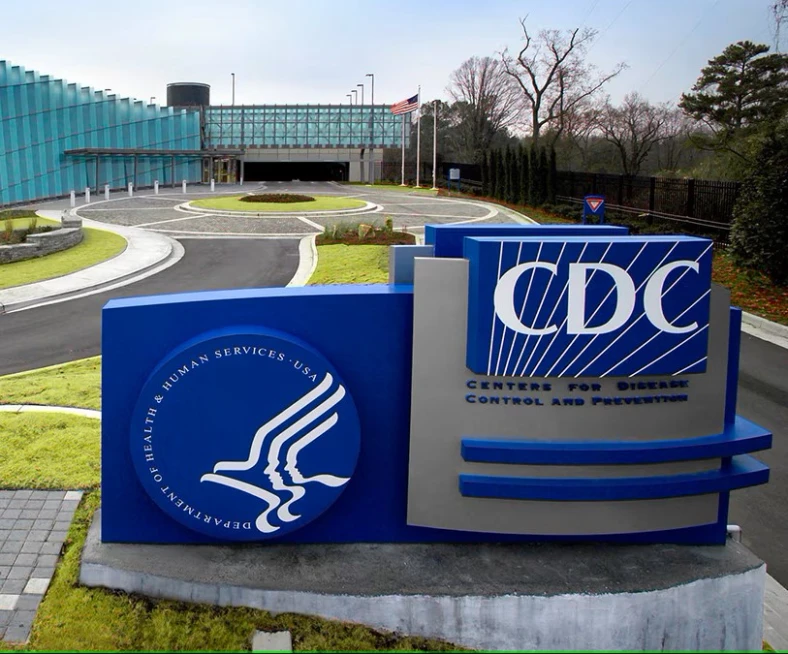In a concerted effort to bolster Nigeria’s public health emergency preparedness, the U.S. Centers for Disease Control and Prevention (CDC) recently trained a new cohort of medical professionals. A total of 55 public health experts graduated during a ceremony in Lagos, which coincided with a media roundtable highlighting the programme’s achievements.
Dr. Farah Husain, Director of the U.S. CDC Global Health Protection, emphasized the agency’s unwavering commitment to supporting Nigeria’s Global Health Security Agenda, with a focus on reaching 2024 targets. She underscored the importance of U.S. CDC’s collaboration with Nigerian health authorities, including the Nigeria Centre for Disease Control (NCDC), state ministries of health, and implementing partners. The initiative aims to strengthen Nigeria’s capacity for responding to disease outbreaks, ensuring compliance with International Health Regulations (IHR), and improving national preparedness for public health emergencies.
“CDC will continue to collaborate with Nigeria’s health ministries, the NCDC, and other partners to enhance workforce capabilities and meet IHR standards, strengthening the nation’s response to disease outbreaks,” Dr. Husain stated.
Dr. Muhammad Saleh of the U.S. CDC highlighted the urgent need to improve public health emergency preparedness in Nigeria, given the country’s ongoing challenges with multiple disease outbreaks. He pointed out that building capacity in this area is crucial for mitigating the impact of health crises such as meningitis, diphtheria, and the lingering effects of COVID-19. Dr. Saleh emphasized the pivotal role of the CDC-supported Public Health Emergency Management (PHEM) programme in equipping medical professionals with the necessary skills to respond to emergencies effectively.
The PHEM programme is a key U.S. initiative supporting Nigeria’s public health infrastructure. Dr. Saleh noted that although the CDC has trained 223 international PHEM fellows from 49 countries, only seven have come from Nigeria, highlighting the pressing need to expand local training efforts. These efforts are essential for the effective operation of Public Health Emergency Operations Centres (PHEOCs) across the country. “Nigeria has been a partner in the Global Health Security Agenda since 2019, dedicated to protecting against global health threats posed by infectious diseases,” Dr. Saleh noted, stressing the importance of this partnership amid increasing health challenges.
The primary objective of the PHEM programme is to train health workers to respond to public health emergencies, including pandemics and natural disasters. Dr. Saleh explained that the programme enhances the knowledge, skills, and attitudes of public health personnel, fostering a culture of preparedness. “Since its inception in 2017, over 200 Nigerian public health staff have completed the training,” Dr. Saleh revealed, adding that the programme has significantly improved Nigeria’s capacity to manage outbreaks such as meningitis, diphtheria, and COVID-19.
Reflecting on the impact of U.S. investments in Nigeria’s public health infrastructure, Dr. Saleh noted substantial returns, particularly in outbreak detection and management. The CDC-supported programme has contributed to an improvement in Nigeria’s joint external evaluations, with the country’s score increasing from 39% to 54%. “The U.S. government has provided over $2 million in support, and over 200 public health staff have graduated from the PHEM programme since 2017. These graduates have played a crucial role in detecting over 1,134 cases of meningitis alone,” he added.
The leadership of the U.S. CDC reiterated its commitment to Nigeria’s public health development. Dr. Husain, Director of the U.S. CDC Division of Global Health Protection, reaffirmed the CDC’s dedication to preventing, detecting, and responding to public health threats. She highlighted the importance of continued collaboration in strengthening emergency management capabilities and assured that the U.S. government would sustain its support for Nigeria’s capacity-building initiatives. “Our commitment extends beyond training; we are focused on reinforcing the entire public health infrastructure,” she said.
Dr. John Oladejo, Director of Special Duties at the NCDC, provided an overview of the PHEM training curriculum. He explained that the programme equips participants with essential skills for coordinating emergency management during disease outbreaks. “The training covers critical aspects of public health emergency management, such as Incident Management Systems (IMS), planning, logistics, and data management,” Dr. Oladejo explained, adding that the training prepares participants to activate the Emergency Operations Centre (EOC) and manage surveillance data from different states effectively.
The PHEM training is delivered at various levels: basic, intermediate, and advanced. Basic training involves eight hours of instruction, while the intermediate course spans 16 hours, culminating in a comprehensive five-day in-person session. Dr. Oladejo emphasized the EOC’s critical role in outbreak surveillance and management, noting that it coordinates activities such as risk assessments and data management during public health emergencies. “Collaboration across health organisations is essential for effective emergency management, helping to break down silos and enhance Nigeria’s overall public health capacity,” he concluded.
This integrative approach is vital for strengthening Nigeria’s public health system, ensuring a more resilient response to health crises in the future.




